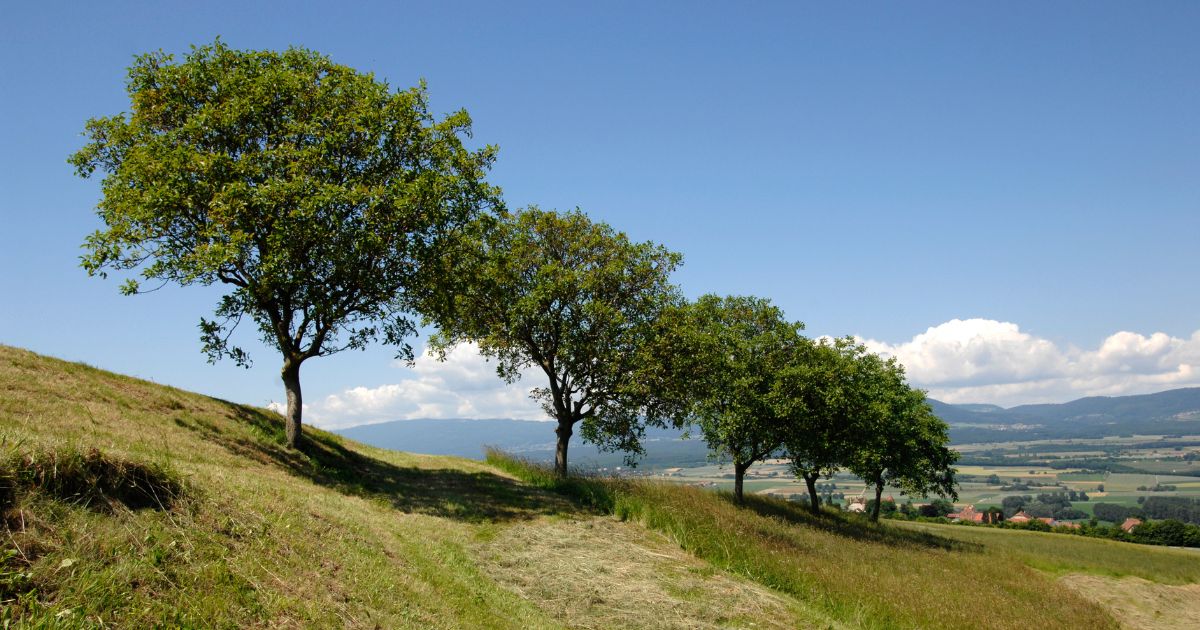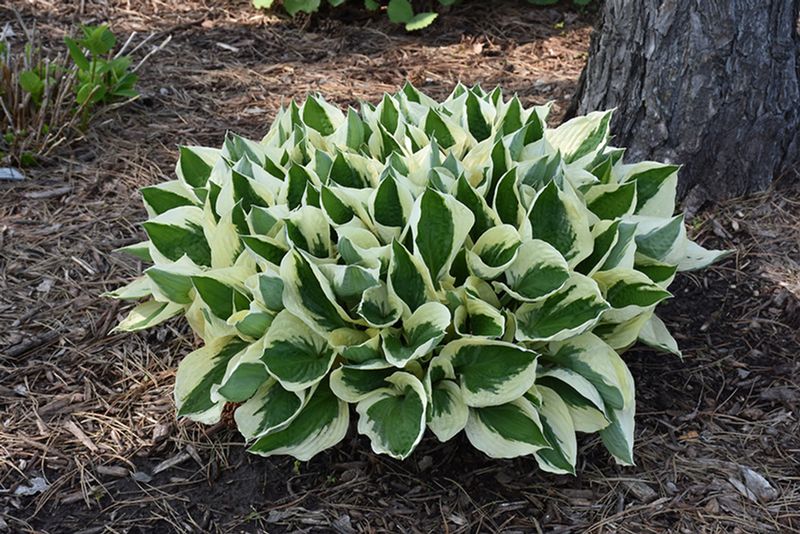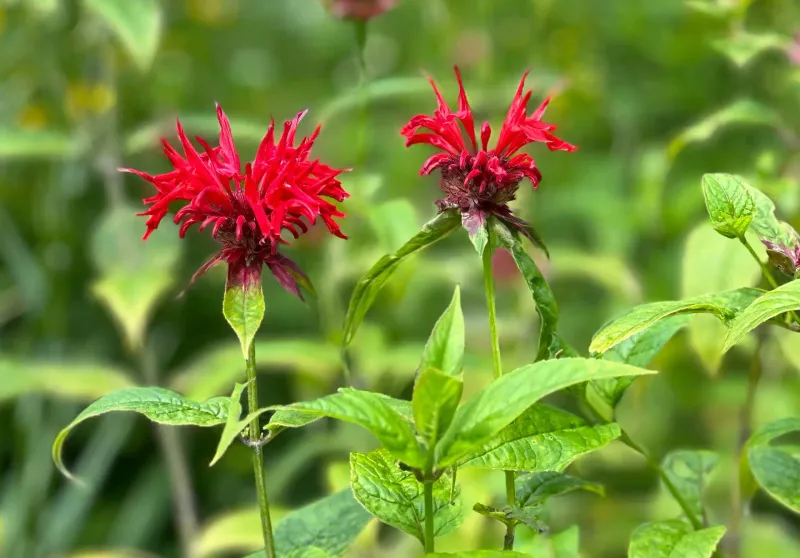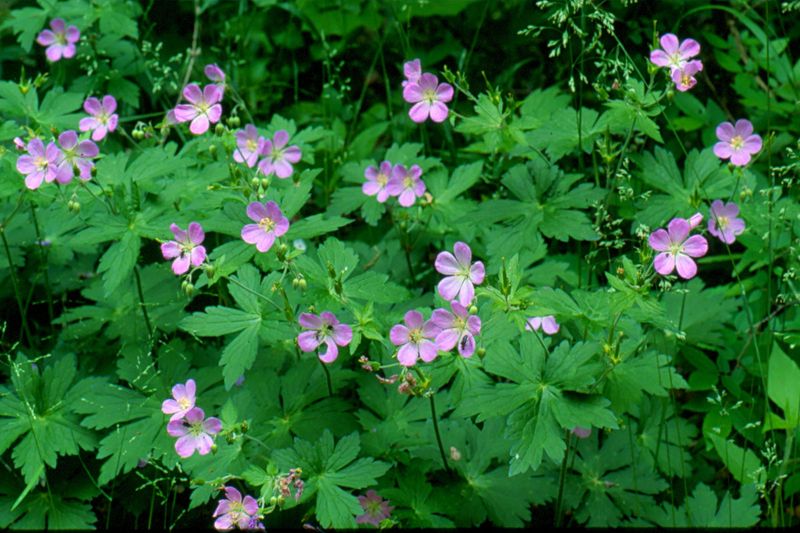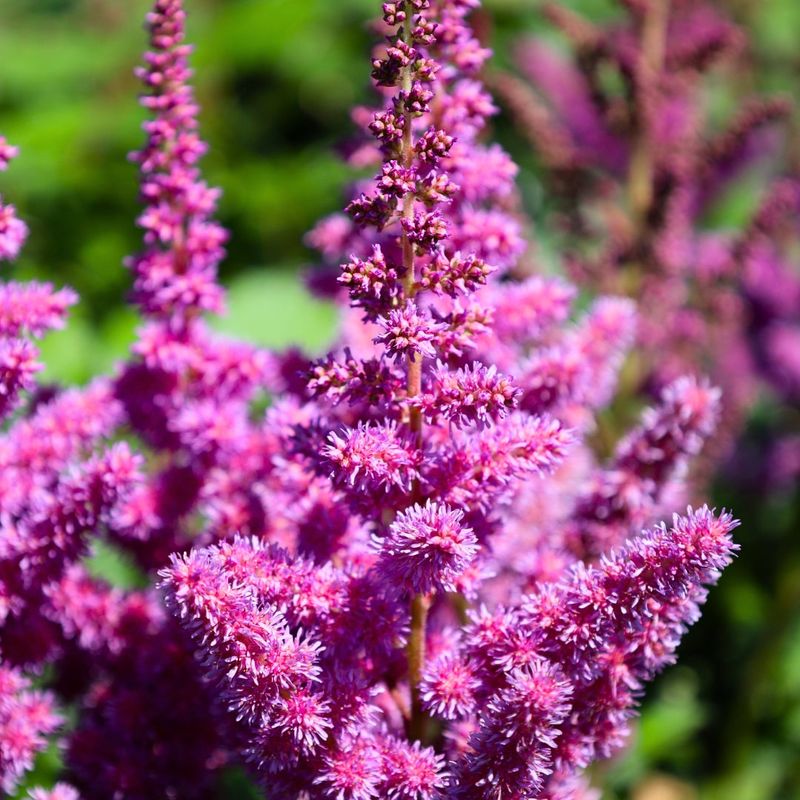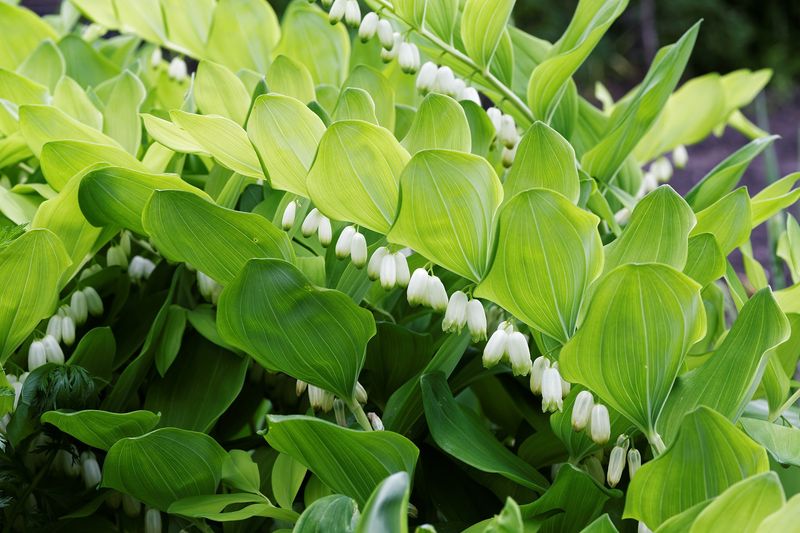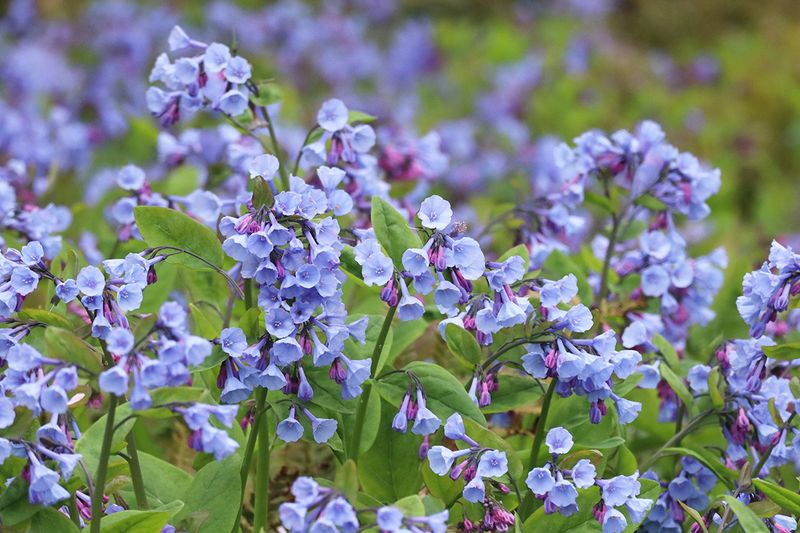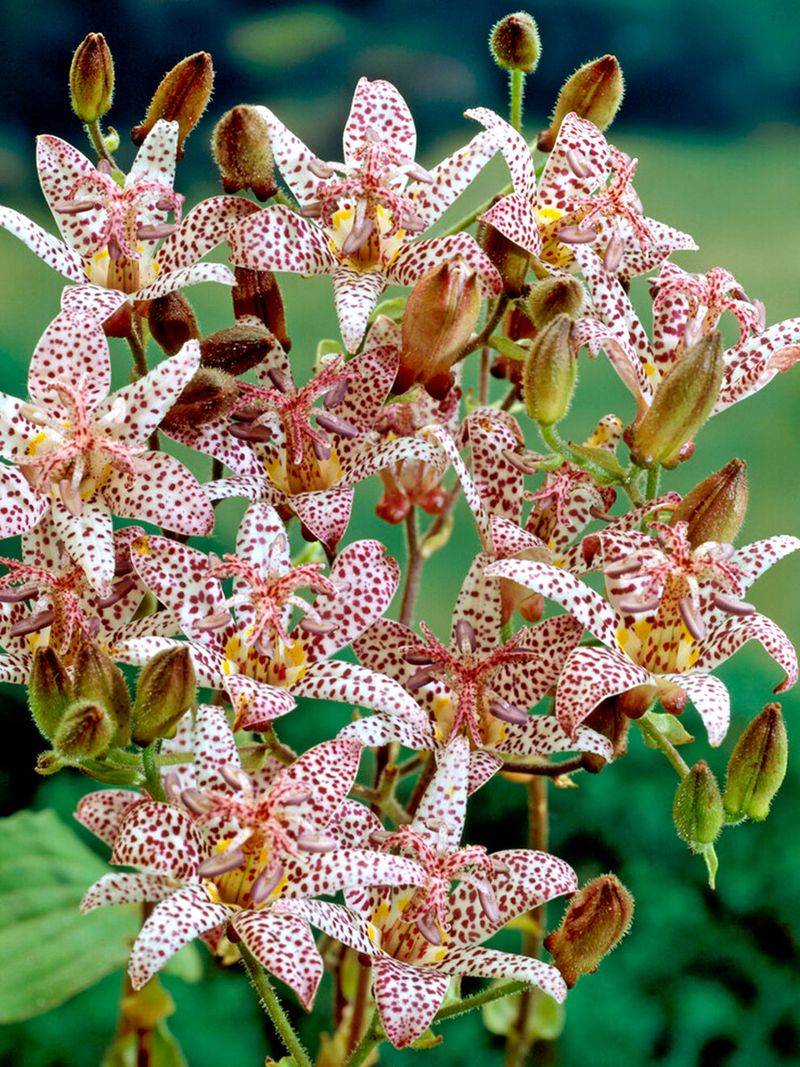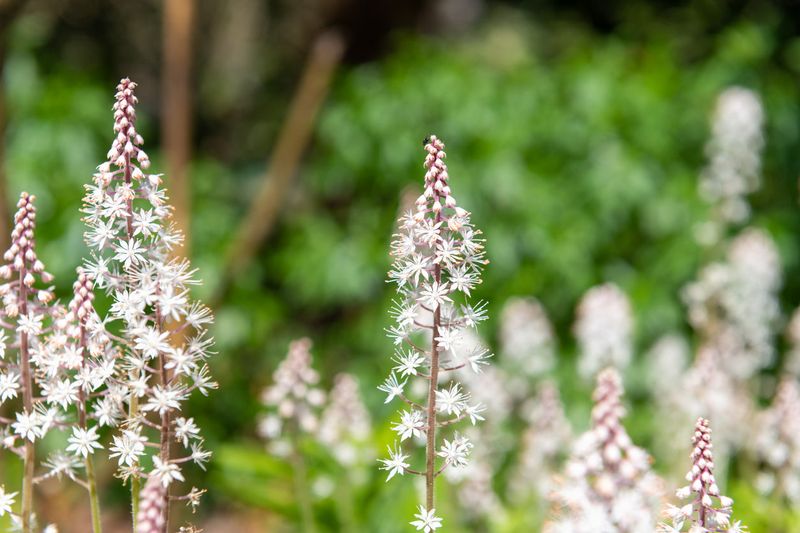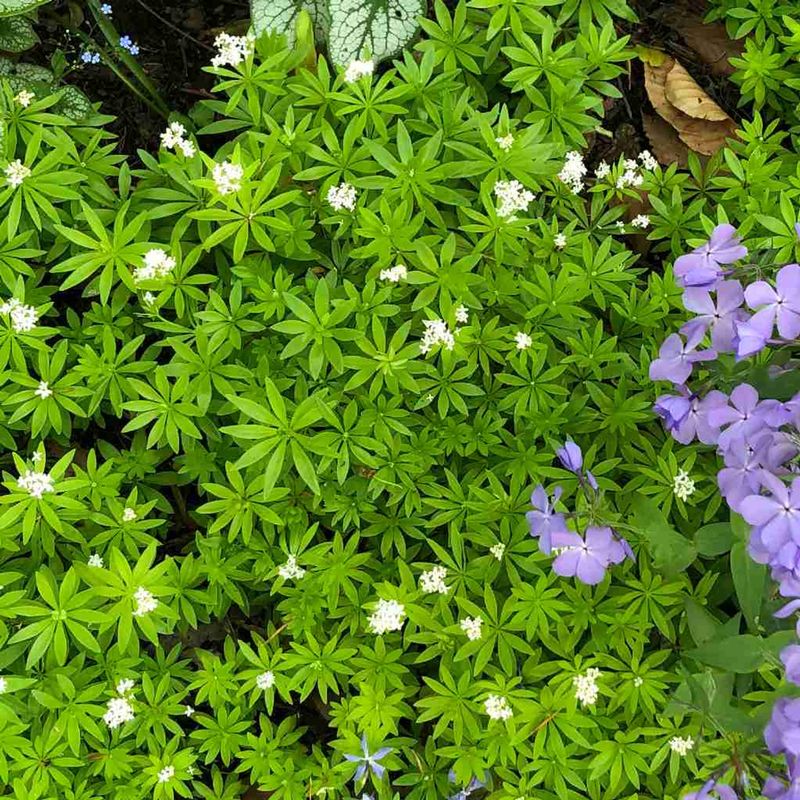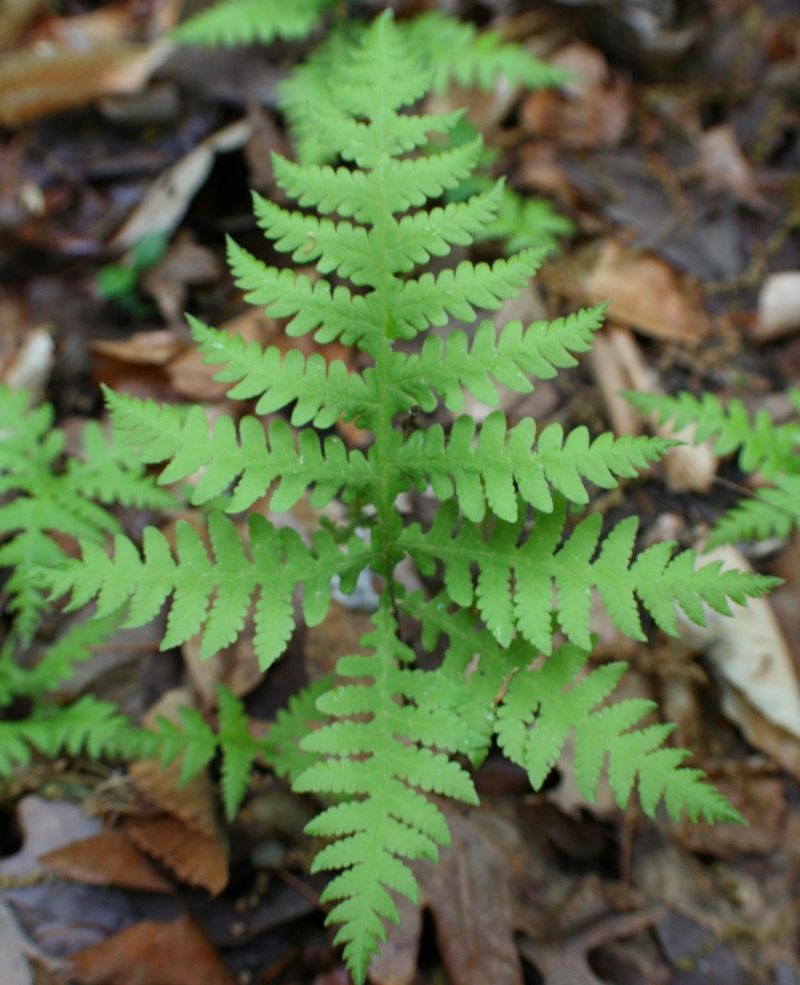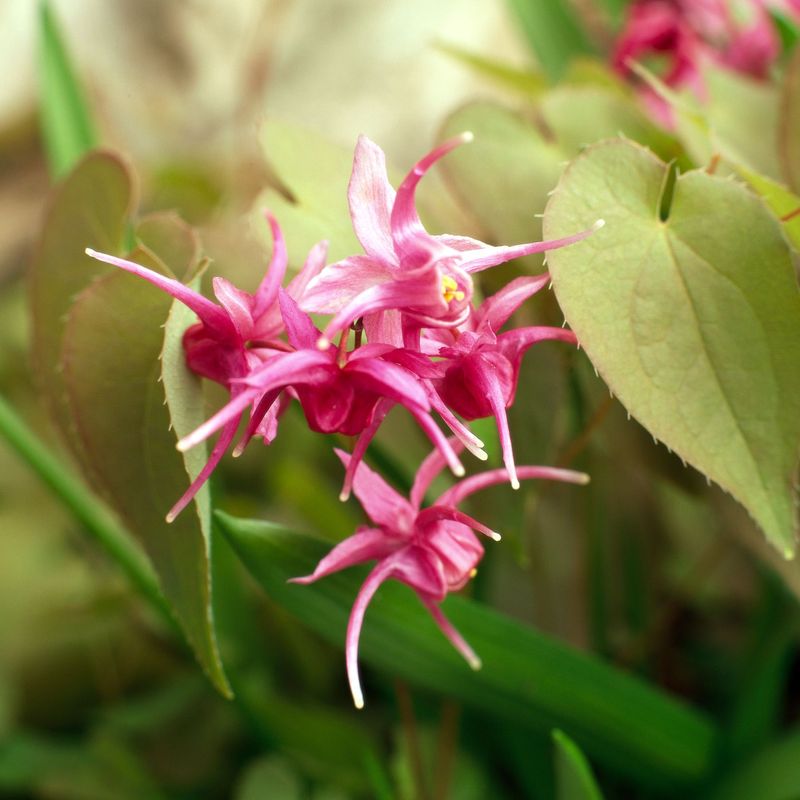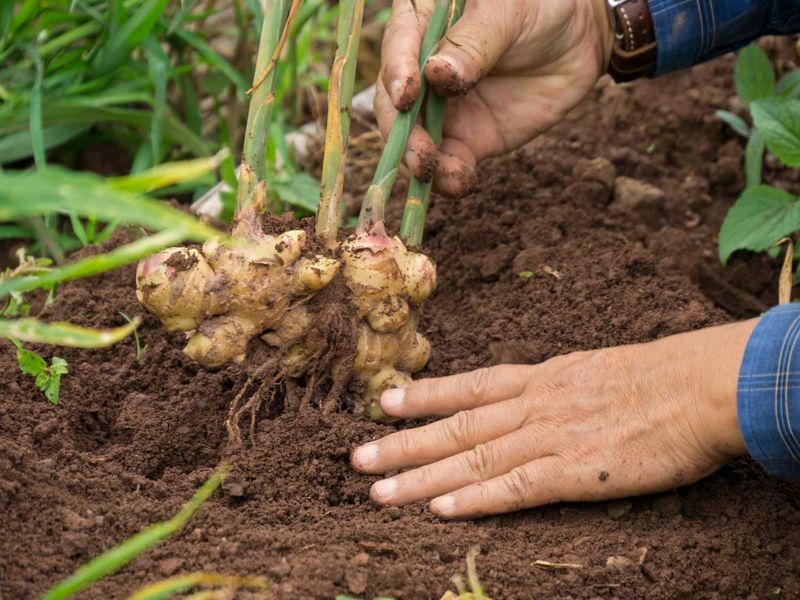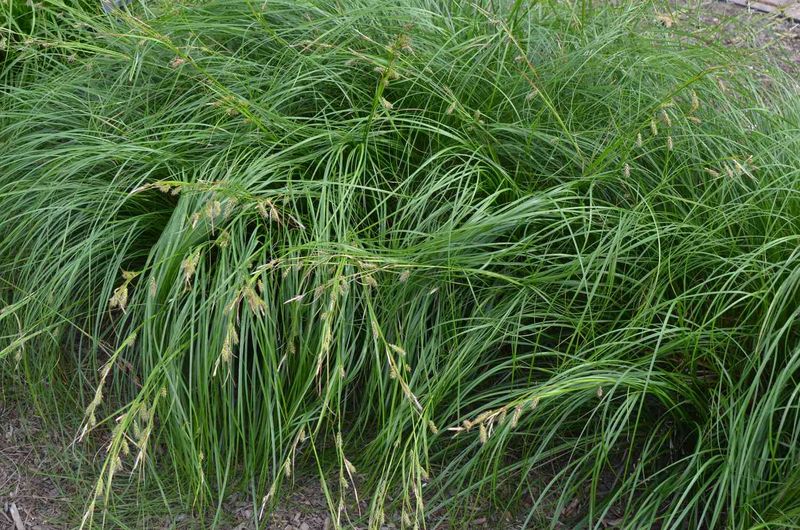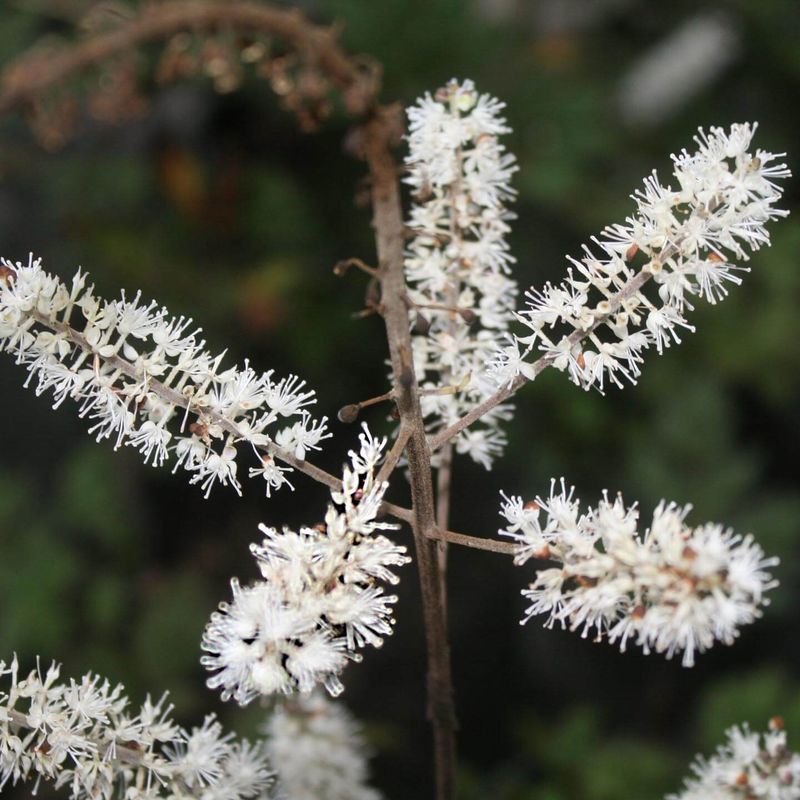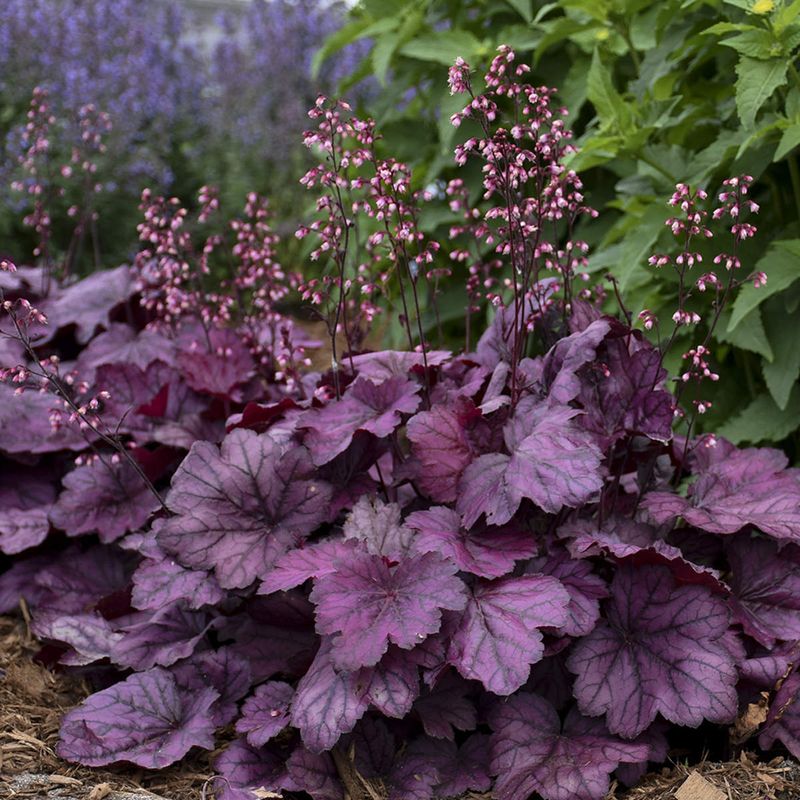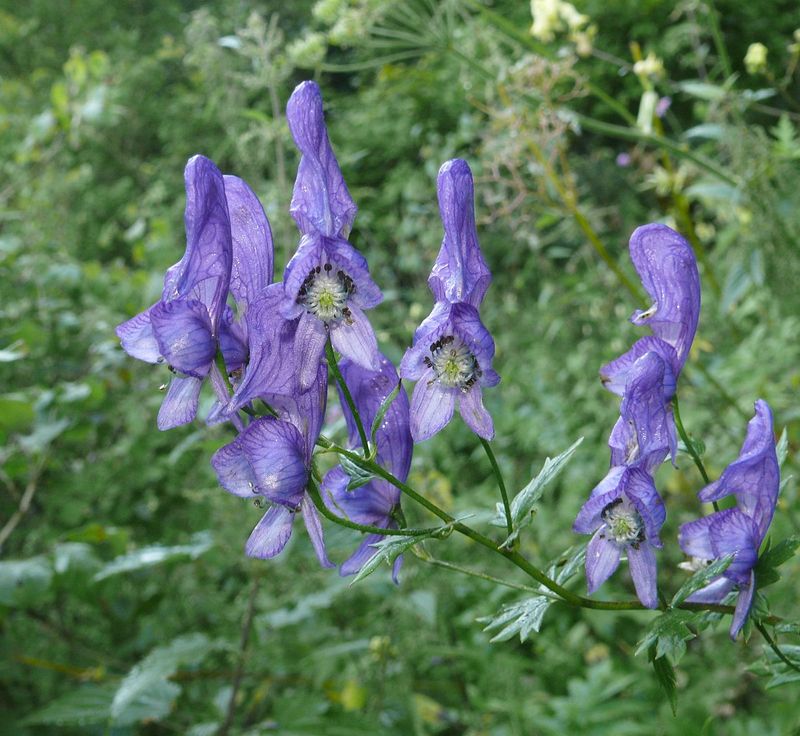Black walnut trees are known for their ability to inhibit the growth of many plants due to the chemical juglone they release. However, there are several plants that not only tolerate this environment but thrive in it.
These species can transform the often bare and sparse areas beneath black walnut trees into lush, green oases. In this article, we explore 20 such plants that can flourish in the presence of black walnuts, helping to beautify your garden and maximize your space.
1. Hosta
Hostas are excellent choices for growing under black walnut trees, as they are juglone-tolerant. These perennials come in a variety of shapes and sizes, ranging from small, compact varieties to large, expansive ones.
Their broad leaves create a lush ground cover that thrives in shaded areas. Hostas also provide beautiful foliage with colors varying from deep greens to blue-greens and even gold.
Their ability to grow in clusters helps to suppress weeds, making them a practical choice for gardeners looking to manage their landscape effectively. Planting hostas can transform a bare spot into a vibrant, leafy haven.
2. Bee Balm
Bee balm, also known as Monarda, is a flowering perennial that thrives in the dappled shade under black walnut trees. Known for their striking, colorful blooms, bee balms attract pollinators such as bees and butterflies, enhancing the biodiversity of your garden.
Their aromatic foliage adds a delightful scent, providing an additional sensory experience. Bee balm is not only beautiful but also resilient, capable of adapting to various soil types as long as the drainage is adequate.
These plants can brighten up any dull spot, providing vibrant color and lively activity throughout summer.
3. Wild Geranium
Wild geraniums flourish in the partial shade provided by black walnut trees, offering delicate pink or purple flowers that bloom in late spring to early summer. These perennials are juglone-resistant and require minimal maintenance, making them ideal for areas that are often overlooked.
Their soft, lobed leaves create an attractive ground cover, and their flowers offer a subtle beauty that complements the natural landscape.
Once established, wild geraniums can naturalize, spreading gently over time to cover more ground. They are perfect for adding a touch of elegance to any garden space.
4. Astilbe
Astilbe plants are known for their fluffy, feather-like plumes and fern-like foliage, making them a striking addition under the canopy of black walnut trees. These perennials are juglone-tolerant and thrive in moist, well-drained soil.
Astilbes come in various colors, including pink, white, and red, providing a lovely contrast to the dark greens of the surrounding foliage.
Their blooms attract pollinators, adding life and movement to the garden. With their elegant appearance, astilbes can transform barren spots into beautiful, shaded retreats with ease.
5. Solomon’s Seal
Solomon’s Seal is a graceful perennial that does well in the shaded environments found beneath black walnut trees. Its arching stems and dangling white flowers provide a unique and elegant appearance, making it a favorite among gardeners.
The plant thrives in well-drained soil and can adapt to various moisture levels, though it prefers consistent watering.
Its resilience to juglone makes it a reliable choice for under-tree planting. Solomon’s Seal can add structure and interest to your garden, transforming bare areas into lush, green sanctuaries.
6. Lungwort
Lungwort, or Pulmonaria, is a shade-loving perennial perfect for planting beneath black walnut trees. Known for its spotted or variegated leaves, lungwort adds visual interest even when not in bloom.
In spring, it produces clusters of small, bell-shaped flowers in shades of blue, pink, or white, which attract pollinators. Its preference for cool, moist, and well-drained soil makes it an excellent ground cover in shaded areas.
Lungwort can effortlessly transform sparse, dull spots into vibrant, eye-catching sections of the garden, all while being juglone-resistant.
7. Virginia Bluebells
Virginia bluebells are herbaceous perennials that thrive in the shaded, moist conditions under black walnut trees. Their clusters of bell-shaped, blue flowers emerge in spring, creating a stunning carpet of color.
As juglone-resistant plants, they are well-suited for growing in this environment, providing early-season interest in the garden. Virginia bluebells are easy to grow, requiring little maintenance once established.
These plants naturally die back in summer, making room for other perennials to take center stage, and are ideal for creating a dynamic, changing landscape year-round.
8. Toad Lily
Toad lilies are exotic-looking perennials that flourish in the dappled shade beneath black walnut trees. Their unique, star-shaped flowers are speckled with spots, giving them an orchid-like appearance.
These plants are highly adaptable, thriving in moist, well-drained soil and tolerating a range of light conditions. They bloom in late summer to fall, providing color when many other perennials have finished.
With their striking flowers and lush foliage, toad lilies can transform bare garden spots into areas of surprising beauty, all while resisting the effects of juglone.
9. Foamflower
Foamflowers, or Tiarella, are charming perennials perfect for shaded areas beneath black walnut trees. They are juglone-resistant and thrive in moist, well-drained soil.
These plants produce delicate, fluffy white or pink blooms in spring, resembling a foam-like appearance, which can brighten up any dark corner. Their heart-shaped leaves often have interesting patterns or textures that add further visual interest.
Foamflowers are excellent for ground cover, providing a lush, green carpet that can transform bare spots into vibrant, horticultural displays.
10. Jacob’s Ladder
Jacob’s Ladder thrives in the partial shade under black walnut trees, known for its ladder-like leaf arrangement that creates a unique texture. In late spring, the plant produces clusters of pale blue or white, bell-shaped flowers that dangle gracefully.
This perennial is juglone-resistant and prefers cool, well-drained soil but can adapt to various moisture levels. Its ability to self-seed means it can fill in bare spots over time, adding lushness to the garden.
Jacob’s Ladder offers both visual appeal and ecological benefits, attracting pollinators and enhancing under-tree biodiversity.
11. Columbine
Columbines are delightful perennials that do well under black walnut trees, offering unique, multi-colored flowers that resemble intricate origami. These flowers attract hummingbirds and butterflies, adding movement and life to the garden.
The plant’s delicate, fern-like foliage provides an attractive backdrop even after the flowers have faded. Columbines are juglone-tolerant and adaptable to various soil conditions, thriving best in well-drained areas.
Their ability to self-seed allows them to naturalize, creating a continuously evolving garden landscape that transforms otherwise barren spots into lively, colorful displays.
12. Sweet Woodruff
Sweet woodruff is a low-growing perennial that thrives under black walnut trees, known for its whorls of bright green leaves and small, fragrant white flowers. It’s juglone-tolerant and prefers moist, well-drained soil.
This plant is excellent for ground cover, as it spreads quickly to form a dense, lush carpet, suppressing weeds and adding a lush undergrowth to the garden.
Sweet woodruff’s sweet aroma adds to its charm, making it a favorite for shaded pathways or woodland gardens. Its rapid growth and resilience make it an ideal choice for transforming bare garden spots.
13. Hardy Ferns
Hardy ferns thrive in the shaded areas beneath black walnut trees, offering a range of textures and shapes with their delicate fronds. These perennials are juglone-tolerant and adapt well to moist, well-drained soils.
Ferns provide year-round interest with their evergreen foliage, adding structure and movement to the garden. They are perfect for creating a serene, woodland atmosphere, complementing other shade-loving plants.
By planting hardy ferns, gardeners can easily transform bare patches under black walnuts into lush, green oases that require minimal maintenance and provide lasting visual appeal.
14. Barrenwort
Barrenwort, also known as Epimedium, is a hardy perennial that thrives under black walnut trees. Its heart-shaped leaves and delicate yellow, pink, or white flowers provide visual interest in shaded areas.
This plant is juglone-resistant and adapts well to various soil types, preferring moist, well-drained conditions. Barrenwort’s foliage often takes on a red or bronze hue in fall, adding seasonal color to the garden.
With its ability to form a dense ground cover, barrenwort is ideal for transforming bare spots into vibrant, colorful displays, enhancing the beauty of any garden.
15. Bleeding Heart
Bleeding hearts are enchanting perennials known for their arching stems and pendant, heart-shaped flowers. They thrive in the dappled shade under black walnut trees and are juglone-resistant.
These plants bloom in spring, offering delicate pink or white flowers that add a touch of romance to the garden. Bleeding hearts prefer moist, well-drained soil and can tolerate a range of light conditions.
Their unique appearance and charming blooms can transform barren garden spots into enchanting retreats, capturing the imagination and providing a haven for shade-loving wildlife.
16. Ginger
Ginger, particularly wild ginger, is an excellent ground cover for the shaded areas beneath black walnut trees. This perennial features glossy, heart-shaped leaves that create a dense, lush carpet.
Its small, inconspicuous flowers are often hidden beneath the foliage, adding a touch of mystery to the garden. Wild ginger is juglone-tolerant and thrives in moist, well-drained soil, making it a reliable choice for under-tree planting.
By using ginger, gardeners can transform bare areas into lush, green spaces, providing a natural and inviting woodland atmosphere.
17. Sedge
Sedges are versatile perennials that thrive in the shaded, moist areas beneath black walnut trees. With their grass-like appearance, they add texture and movement to the garden, contrasting with broader-leaved plants.
These juglone-tolerant plants are easy to care for and adapt to a range of soil conditions, making them ideal for less hospitable garden spots. Sedges often feature subtle flower spikes that add interest without overwhelming the landscape.
By incorporating sedges, gardeners can fill bare spots with an elegant, understated beauty that enhances the overall garden aesthetic.
18. Black Snakeroot
Black snakeroot, also known as Cimicifuga, is a striking perennial that thrives under black walnut trees. Known for its tall spikes of white flowers and dark, finely cut foliage, it adds drama and height to shaded areas.
This juglone-resistant plant prefers moist, rich soils and can tolerate a range of light conditions. Its late summer blooms attract pollinators, adding life and movement to the garden.
Black snakeroot can transform otherwise dull spots into dynamic, eye-catching displays, making it a valuable addition to any shade-tolerant plant collection.
19. Heuchera
Heuchera, commonly known as coral bells, are versatile perennials that flourish under black walnut trees. Known for their vibrant foliage, they come in shades of purple, green, and red, providing year-round interest.
These juglone-tolerant plants thrive in moist, well-drained soil and can adapt to various light conditions. In late spring, they produce delicate flower spikes that add a touch of whimsy to the garden.
Heuchera’s colorful leaves can transform bare garden areas into lively, colorful displays, offering both aesthetic appeal and functional ground cover.
20. Aconitum
Aconitum, also known as monkshood, is a dramatic perennial that flourishes in the shade under black walnut trees. Known for its tall spikes of deep blue flowers, it adds a striking vertical element to the garden.
This juglone-resistant plant prefers cool, moist, well-drained soils and can adapt to various light conditions, making it a versatile choice for challenging spots.
With its distinctive appearance and resilient nature, aconitum can transform bare areas into bold, beautiful landscapes, providing seasonal interest and enhancing garden diversity.
